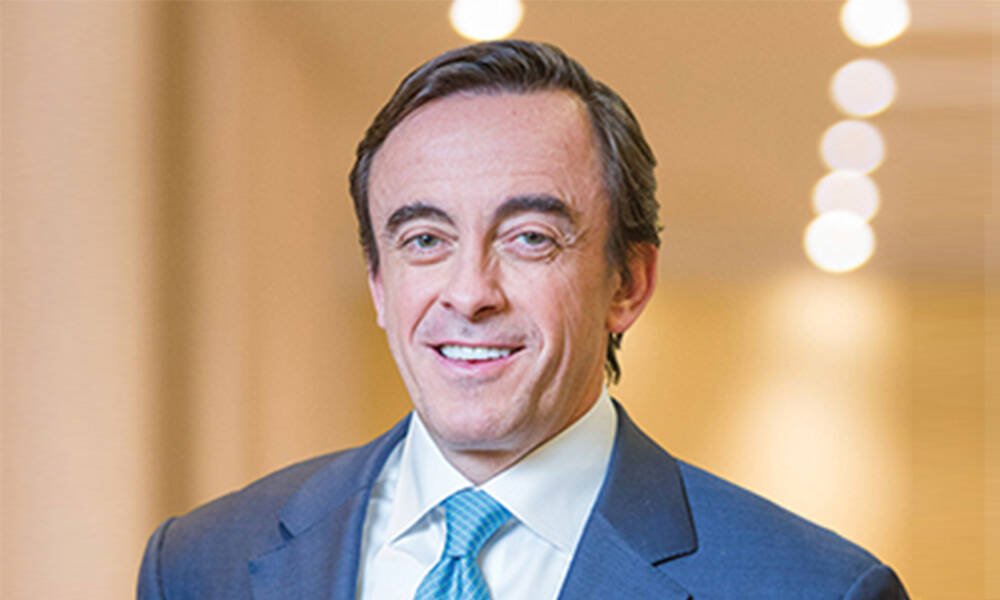Deflated expectations
Whether inflation will be tamed sooner or later, ending interest rate hikes weighs heavily on investors heading into 2023
Advertisement
Read this article for free:
or
Already have an account? Log in here »
To continue reading, please subscribe:
Monthly Digital Subscription
$0 for the first 4 weeks*
- Enjoy unlimited reading on winnipegfreepress.com
- Read the E-Edition, our digital replica newspaper
- Access News Break, our award-winning app
- Play interactive puzzles
*No charge for 4 weeks then price increases to the regular rate of $19.00 plus GST every four weeks. Offer available to new and qualified returning subscribers only. Cancel any time.
Monthly Digital Subscription
$4.75/week*
- Enjoy unlimited reading on winnipegfreepress.com
- Read the E-Edition, our digital replica newspaper
- Access News Break, our award-winning app
- Play interactive puzzles
*Billed as $19 plus GST every four weeks. Cancel any time.
To continue reading, please subscribe:
Add Free Press access to your Brandon Sun subscription for only an additional
$1 for the first 4 weeks*
*Your next subscription payment will increase by $1.00 and you will be charged $16.99 plus GST for four weeks. After four weeks, your payment will increase to $23.99 plus GST every four weeks.
Read unlimited articles for free today:
or
Already have an account? Log in here »
Hey there, time traveller!
This article was published 31/12/2022 (1072 days ago), so information in it may no longer be current.
Interest rates and their direction will undoubtedly pique investors’ interest in 2023.
Of course, inflation and its direction will also be on everyone’s minds as its direction will inform what path central bankers take in setting rates as they try to bring inflation back to their two per cent per year goal.
With inflation today likely three times this benchmark, more work is very likely left to be done.

Brent Joyce, chief investment strategist at BMO Private Wealth.
The question is how many more rate hikes will it take to send inflation heading in the right direction?
“This past year has already been marked by this bulk of this transition period where economies, and markets being a part of them, have had to adjust to high inflation and with that higher interest rates,” says Brent Joyce, chief investment strategist at BMO Private Wealth.
“Along with that is less ‘free’ or ‘easy’ money from central banks and government.”
All this so far has pushed stocks markets in Canada, the U.S. and elsewhere into bear market territory, down more than 20 per cent. Bond markets have come close to doing the same, which is rarely seen.
Equally unusual, both asset classes fell at the same time in 2022.
Typically, bonds and stocks offset each other. When stock prices are down, bond values rise and vice versa.
Both asset classes have spent the last year pricing in higher interest rates, which are aimed at cooling borrowing and spending, hopefully leading to less demand on supplies of goods and services and, as a result, significantly lower inflation.
Central bankers’ aim is a ‘soft landing’ for the economy. Yet it’s more likely they overshoot with rate hikes and spark a mild recession, Joyce predicts.
“Not every recession has to be a 2008 financial crisis or a 2020 pandemic style.”
Unlike 2008 when the banking system collapsed due to widespread fraud in an overheating U.S. housing market, if a recession emerges in 2023, it will be “a more garden variety” one caused by typical economic drivers like higher borrowing costs, slowing consumer demand amid rising supply, Joyce says.
For investors, there is an upside to the upheaval of the past year heading into 2023: “The heavy lifting in the bond market has been done to right-size from the low interest rates of more than a decade that were not historically normal,” Joyce says.
“So the bond market is on much better footing.”
Fixed income now provides decent returns for savers, he adds.
While bond values could still be negatively affected by more interest rate hikes, most market watchers expect increases to end in spring with interest rates remaining flat for the rest of the year, says Kevin McCreadie, the chief investment officer at AGF Investments Inc.
“But there will be choppiness in equity and bonds markets at least into the middle of the year.”
That’s really just more of the same for investors, who saw in recent months the stock market jump up on inflation easing slightly and central bankers considering easing rate hikes.
And then, markets would fall back down the next day on conflicting economic data.
Count on central bankers remaining resolute, who are less concerned with a recession caused by high interest rates than one caused by runaway inflation, McCreadie says.
“Even the Bank of Canada has acknowledged the bigger risk is cutting rates too soon when the economy is still hot.”
It’s unlikely to be an easy ride back to two per cent inflation. Going from eight per cent this past summer to four per cent — hopefully by this coming summer — should be the easy part, he adds.

Kevin McCreadie, the chief investment officer at AGF Investments Inc.
Going from four to two per cent is likely to take much longer even as “the world is awash in goods,” McCreadie says.
The seemingly bigger challenge today and in the near future is a shortage of workers.
“It’s really the wage side that has gotten sticky,” McCreadie says.
Shortages aside, “people also don’t believe inflation is coming down so they are demanding wage increases.” That too causes higher prices as companies pass on labour increases to consumers.
In turn, consumers cut back, demand falls, leading to oversupply, and employers cut jobs, leading to less wage pressure and eventually lower inflation.
From an investor perspective, a good argument can be made that stocks and bond markets have already priced in this scenario.
All taken together, 2023 seems like it will be a tough year, and it probably will be — at first.
“But then we’re likely going to see markets recover in the latter half of the year when it’s clear that central banks are done raising rates,” McCreadie says.
In turn, the first half of the year may present a buying opportunity for stocks — with prices lower than they’ve been in years — and bonds offering yields higher than they’ve been in more than a decade.
Another potential window of opportunity is real estate, which also experienced challenges in 2022.
Publicly traded “real estate had its second worst year ever,” says Corrado Russo, senior managing director of investments at Hazelview Investments, referring to real estate investment trusts (REITs).
Only 2008 was worse, which was followed by one of the best on record, he adds.
Could real estate rebound in 2023?
Of course, it’s the same question for stocks and bonds too.
Joyce cautions that economic conditions could certainly get worse this coming year.
“But the global economy is in much better shape because even though it may be heading into a recession, this time around it is likely one to stamp out inflation versus one caused by a myriad of deeply systematic problems like in 2008.”

